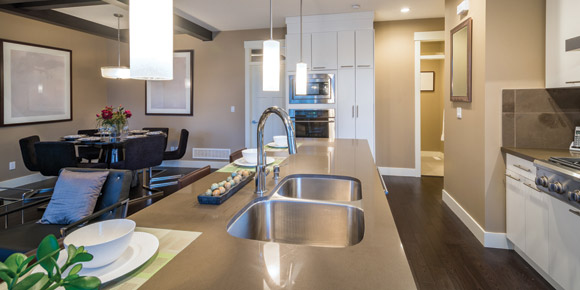As a condo owner or renter, you may assume that you don't need household insurance because it's covered by the regular monthly condo fee. But although the condominium corporation must carry insurance on the building, it does not cover everything. Both owners and renters can avoid costly mishaps by taking the following steps:
Assess your space
Regularly check for any damage —even if it's minor — to the walls, ceiling, floors, countertops, windows and doors. Make sure to check under sinks for leaks or other issues with your pipes. The earlier you catch these problems, the easier they will be to fix. If you have a balcony, inspect it for damage from the elements. Even an adjacent unit, for example, can have water run-off from the balcony and can cause rust stains.
Check your appliances
The kitchen is usually the room with the most complex wiring. Check for burn marks around the plug and socket for appliances like your dishwasher, fridge, washer, dryer and air condition system. If you're using an extension cord for any one of your appliances, make sure you use the right one for the job — there are special cords rated for use with appliances, and also ones specifically for outdoor use. If you're renting, don't rely only on your landlord to do these checks — do them yourself and let your landlord know if there are any issues that need attention.
Get the appropriate insurance
If you own the unit, you'll need condo insurance that also covers the immovable parts of your condo like your countertops, bathtub and sink, and any improvements you've made like laying in new flooring or renovating the kitchen. If you are a tenant, make sure personal contents are covered, as well as any additional living expenses you would incur should your condo become unfit to live in due to a claim. With the right insurance plan you can avoid unwanted, costly surprises.
— News Canada



